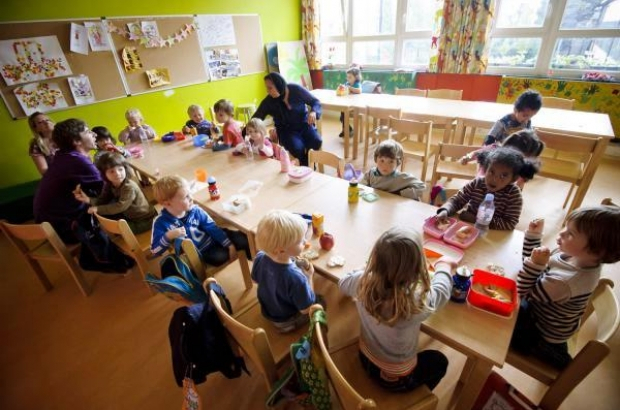- Daily & Weekly newsletters
- Buy & download The Bulletin
- Comment on our articles
Brussels birth rate slowdown could impact funding for schools
Fewer babies are being born in Brussels - and this threatens funding and jobs because the number of teachers is proportional to the number of children enrolled, some schools have warned.
After a significant birth rate boom between 2000 and 2014, the trend has reversed. "Since 2015 there is a lower number of children of nursery school age in the Brussels region," confirmed Julie Lumen, school facilitator for the Brussels-Capital region. In 2015-2016, there were 59,719 kindergarten pupils in Brussels against 57,365 in 2019-2020.
Sainte Dominique School in Schaerbeek is one of many to feel the impact. "Due to a smaller enrollment this year we are losing 13 fifty-minute class periods which were intended for educational support in kindergarten with workshops, an additional staff member to supervise them, for language learning, and for philosophy workshops that we also organise in first grade," said school head Ilir Strazimiri.
The number of births has now decreased for the sixth consecutive year - an overall decline of 15% between 2014 and 2020.
"We explain this mainly by two elements," said Xavier Dehaibe, expert at IBSA, the Brussels Institute for Statistics and Analysis. "The first would be the socio-economic consequences of the economic crisis of 2008, which caused couples to delay having children.
"The second element that explains this drop in the birth rate is the uncertainty about the future. By that we mean economic, geopolitical or climatic insecurity. The pandemic has not helped matters."
This does not mean, however, that investment in planned infrastructure should be slowed down.
"Over the past 20 years, the Brussels region has really experienced growth in its overall school population," Lumen added.
"Specifically we are talking about an increase of 13-15% over the last 10 years. So we have had a lot of projects to create places, which have been funded by the language communities. Some have already been completed.
"Others are still in progress," she added, "and they must be carried out to guarantee the quality of the schools' programmes.
"The number of children is not uniform across the city, with some schools finding themselves with too high occupancy rates. So these projects in progress will allow a rebalancing between the schools.
"And then also, it will allow the removal of certain temporary structures that were created to deal with emergency overcrowding."
















